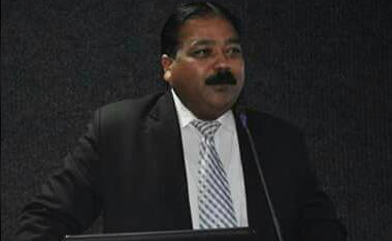

The Face of Secularism and Peace in India
Why secularism is important for India?
India is a multiethnic, multicultural, multi-lingual society. If India doesn’t maintain its tolerant culture, then balkanisation of India will be imminent. In order to hold together a diverse nation as India, which is a democracy, there is no alternative but to further nurture and strengthen the principles of secularism, tolerance, empathy and compassion. Communal incidents bring religious disharmony, disturb the course of life of citizens, hurts the economy and drives away investors from the country.
Ways to strengthen communal harmony and the ethos of secularism
Greater public awareness and vibrant, impartial civil society participation is a sine qua non for building public opinion against communal hatred. With growing interconnectedness of people, through social media, the educated sections have more responsibility to spread the message of love, compassion and empathy towards all religions. This becomes all the more important when cases of radicalisation of alienated people(especially youth) are on the rise. This requires a proactive counter-radicalisation campaign through multiple channels (like co-opting religious leaders, social media, schools, colleges, civil society organizations like youth clubs etc. in the dissemination of noble ideals of fraternity and communal harmony). If there is a vocal public opinion that denounces communal politics, then political parties will also refrain from stoking the communal embers. A State and an administration with zero tolerance towards communalism is the need of the hour. For this, the prevention of communal violence Act will be significant in fixing responsibility and liability on public officials accused of dereliction of duty during incidents of communal congragration. Institutions like National Integration Council and other institutions for communal harmony must be reinvigorated by the state and participation of civil society and society at large. The role of civil society and the people at large is also critical to the spread of the feelings of religious tolerance and secularism and also keep the state accountable towards its primary duty of protecting the life of its citizens, like Mohammed Akhlaq, who unfortunately become the victims of communal violence that destroys the spirit of secularism. A just and fair state that both does justice and is also seen to have done justice towards the grievances of any its religious communities is the best guarantee for a peaceful and cohesive society.
After Independence, and with the adoption of the Constitution, secularism became a value of civil society in India. Even though Partition was a traumatic experience for many, the co-existence of religious communities was essentially peaceful. Then, in the 1984 anti-Sikh ‘riots’ (more aptly named ‘massacres’) 2,700 Sikhs were brutally killed and maimed. Eight years later 1,800 Muslims were massacred on the streets of Bombay, and in 2002 over 2,000 Muslims were killed in the state of Gujarat. Today, communalism in India continues in epidemic proportions as evidenced by the 2007-08 Orissa riots where over 20,000 Christians were forced into refugee camps due to burning and looting of hundreds of houses, churches, convents and seminaries. The struggle for justice in all these cases continues. Against this backdrop, AICHLS's Secularism and Peace Initiative works in solidarity with the victims of communalism to bring cases to courts, and educate people about their rights and dispel myths that fuel the rise of communal unrest.
What We Do?
Together with other human rights organisations and secular groups, the Secularism and Peace Initiative works in solidarity with the victims of communalism to provide legal aid and file public interest litigation to seeks justice for victims of communal crimes. We organise awareness-raising programmes for advocates and law enforcement personnel, conduct workshops in different states that address socio-political perspectives on communalism and address myths related to communalism, democracies and conversions, communal fascism and fundamentalism. These workshops equip participants to use the legal system to intervene to both ensure state protection from communal violence, and to secure restitution for victims and prosecute perpetrators.
AICHLS initiates to undertake fact-finding visits and produces report to educate the public about massacres, including injustices done to minority communities, which otherwise might have been overlooked by the mainstream media. People's tribunal expose and investigate communal disturbances.
AICHLS initiates to have meetings across the country for activists, paralegals, lawyers, community members, judges, journalists, academics, police persons and bureaucrats, on agitating for the rights of people affected by communal violence and produces know-your-rights materials on matters relating to communalism and the law.
Issues Of Concern
- Police atrocities on religious minorities
- Communal riots and unrest
- Rehabilitiation and compensation for victims of communal riots
- Holding perpetrators, including state-sponsored actors, responsible for the persecution of religious minorities
- Sexual violence and violence against women of minority communities.
- Human Trafficking
- Child pornography












